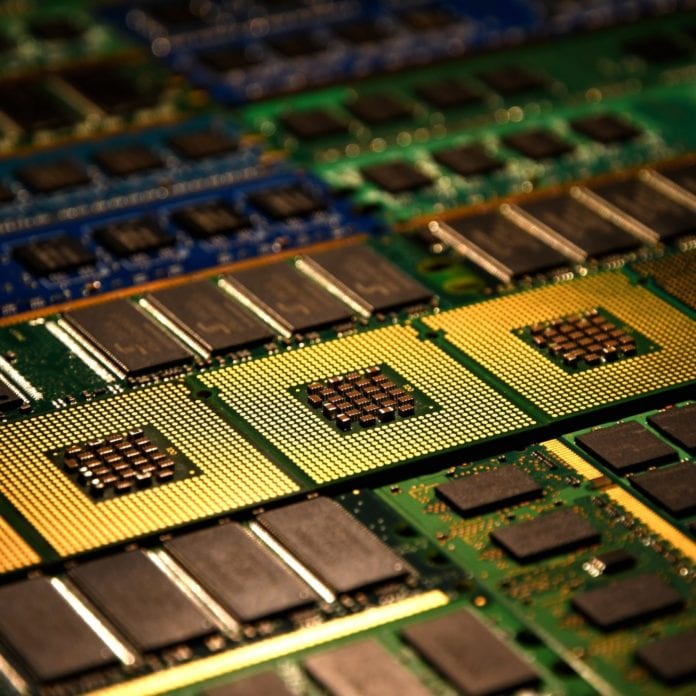Tests of the AI semiconductor will be conducted at SK Telecom’s data centers
South Korea’s Ministry of Science and ICT announced this week that SK Telecom and the Electronics and Telecommunications Research Institute (ETRI) have developed an artificial intelligence (AI) semiconductor based on neural network processing units (NPUs), which can be applied to data centers and IoT devices, and is expected to dramatically raise energy efficiency of various AI services.
“When the chips are used in cloud data centers, they can speed up deep learning processes and increase electric efficiency tenfold,” said Kwon Young-su, group leader of the processor research group at the ETRI.
Currently, the CPUs and GPUs used for AI computation consume a large amount of power and have a large chip size, which limits their efficiency. The country’s first ultra-low-power AI semiconductor (AB9) is designed for high-performance servers at cloud data centers.
By integrating 16,384 computing devices in an area of the size of a coin, ETRI achieved high-computational performance, processing data 40 trillion times per second and minimized power consumption to as low as 15W to 40W by applying software technology capable of running and cutting off power to each computing device.
According to the ministry, the chip minimizes circuit space, while maintaining performance of visual recognition 30 times every second by using one-tenth of the energy (0.5W) spent on commercial semiconductors.
In the second half of the year, empirical tests of the AI semiconductor will be conducted at SK Telecom’s data centers, which will provide intelligent CCTV and voice recognition services.
Despite setbacks felt all around the world at this time, SK Telecom still plans for 2020 to be a big year. With 2.22 million 5G users recorded in January, SK Telecom accounts for 44.7% of Korea’s 5G market, and expects to expand its 5G coverage to neighborhoods of 85 cities and bring the total number of its 5G Clusters to 240 throughout 2020. Further, the company has plans to add AI video analytics and AR technology to its booming next-gen network.
The carrier also has plans to build 5G Mobile Edge Computing centers in 12 locations across Korea, and work with prominent cloud companies like Amazon Web Services and Microsoft to launch 5G edge cloud services.

